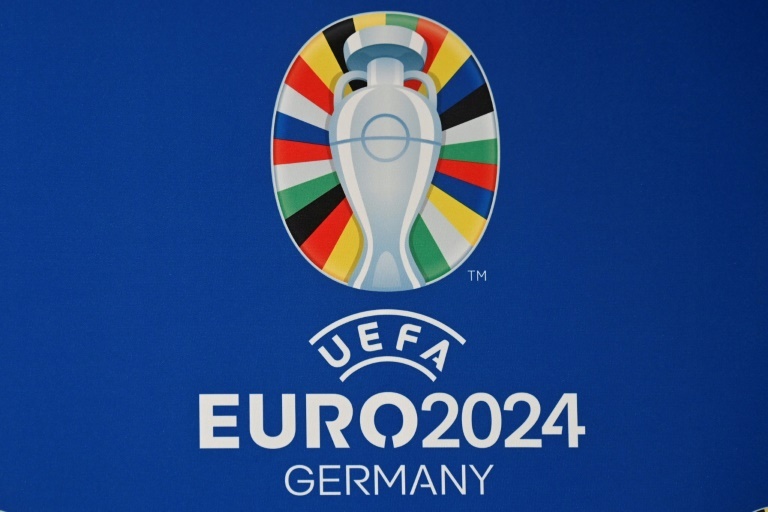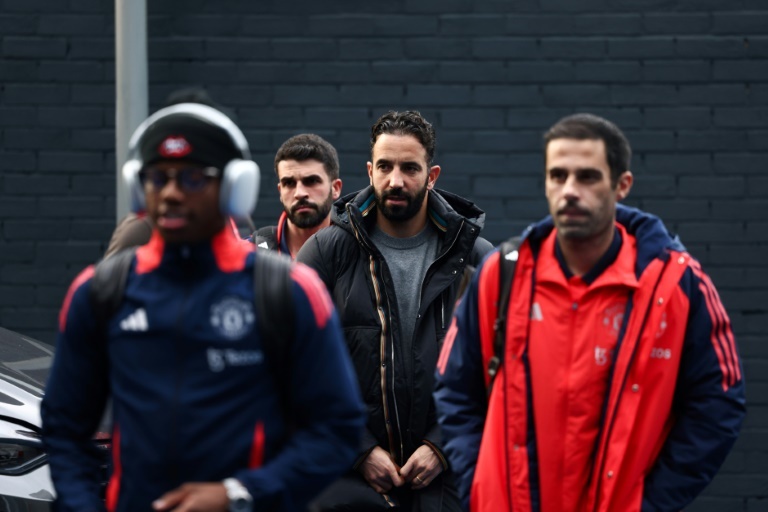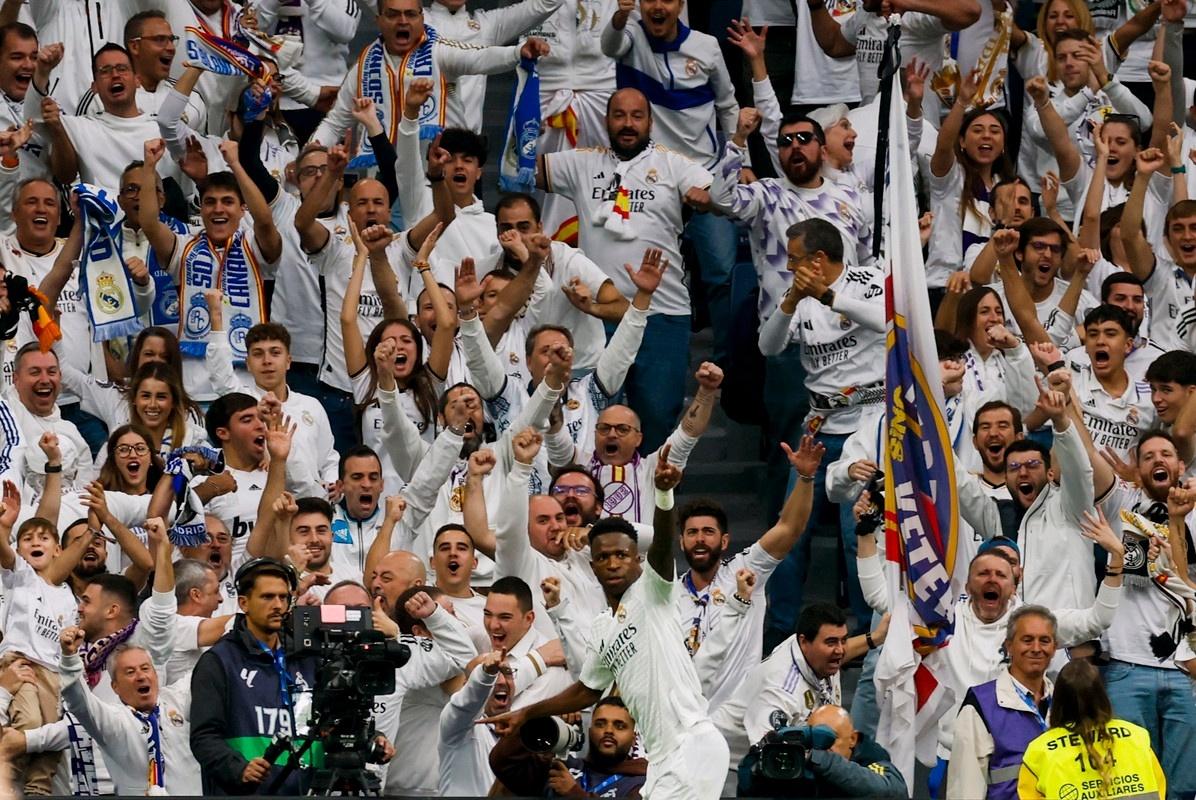Germany hosts Euro 2024 draw as candidates learn their fate

The draw for Euro 2024 takes place in the port city of Hamburg on Saturday when France, England and the other leading contenders will learn the path to potential continental glory that awaits them next summer.
11 months ago
The Elbe Philharmonic Hall, overlooking the river which runs through Germany's second-largest city, will be the venue for the draw, just over six months before the start of the tournament which runs from June 14 to July 14. Not everyone's minds will be on next year's finals just yet as the draw takes place in a city plunged into sub-zero winter temperatures and with top-flight club football the centre of attention across the continent.
Yet Saturday's event marks the start of the real countdown to the European Championship for the 20 nations who have so far qualified alongside hosts Germany. Last year's beaten World Cup finalists France and an England side that has never before been continental champions are in the first pot of seeds along with Portugal, Spain, Belgium and the hosts.
Recent performances and the depth of talent available to their respective coaches, from Kylian Mbappe and Antoine Griezmann to Harry Kane and Jude Bellingham, make France and England stand out among the favourites. There will be pressure on England to go one better than at the last Euro in 2021, when they lost the final on penalties to Italy at Wembley.
"I think we have to accept that. Pressure comes when expectation is different from reality and reality is we are going to be one of the teams capable of winning," England manager Gareth Southgate said recently. Germany, meanwhile, are in crisis on the field having lost six of 11 games played since a second consecutive exit from the World Cup in the group stage last year.
That form cost Hansi Flick his job as coach but they have just suffered back-to-back defeats under his successor Julian Nagelsmann. "We've an unbelievable amount of work to do in every position," Nagelsmann told local media after the recent 2-0 reverse in Austria.
As ever there are dangerous sides lurking outwith the first pot, with the Netherlands - winners of the last Euro held in Germany in 1988 - in pot three, and reigning champions Italy in pot four. Having failed to make the last two World Cups, Italy only wrapped up qualification this time by holding on nervously for a draw with Ukraine in their final game.
None of the sides in the higher pots will want to be drawn with Italy, even if the format removes some jeopardy with four of the best third-placed teams among the six groups advancing to the last 16. "After all the difficulties we have had, we will be in Germany and we will be going there as reigning champions and going there to win," Italy goalkeeper Gianluigi Donnarumma said after the Ukraine draw which secured qualification.
The last three berths at the finals will not be known until the play-offs in March, which will feature the likes of Poland, Wales, Ukraine and Euro 2004 winners Greece.
The form of the host nation is a real concern and threatens German hopes of this being another "summer fairy tale", which is how the country remembers the 2006 World Cup. However, football supporters across the continent will be eager to make the most of a return to the classic format of a Euro staged in one country after the last tournament was held in 11 different nations across the continent.
Euro 2020 was also marred by restrictions on travel and on attendances due to the pandemic. There will be none of that this time and fans will flock to the 10 host cities spread around the country, from the capital Berlin and Hamburg in the north, to Munich in the south and Dortmund in the heart of the Ruhr industrial region. Germany will play in the tournament's opening game in Munich on June 14, while Berlin's 70,000-capacity Olympiastadion will host the final a month later.
Yet Saturday's event marks the start of the real countdown to the European Championship for the 20 nations who have so far qualified alongside hosts Germany. Last year's beaten World Cup finalists France and an England side that has never before been continental champions are in the first pot of seeds along with Portugal, Spain, Belgium and the hosts.
Recent performances and the depth of talent available to their respective coaches, from Kylian Mbappe and Antoine Griezmann to Harry Kane and Jude Bellingham, make France and England stand out among the favourites. There will be pressure on England to go one better than at the last Euro in 2021, when they lost the final on penalties to Italy at Wembley.
"I think we have to accept that. Pressure comes when expectation is different from reality and reality is we are going to be one of the teams capable of winning," England manager Gareth Southgate said recently. Germany, meanwhile, are in crisis on the field having lost six of 11 games played since a second consecutive exit from the World Cup in the group stage last year.
That form cost Hansi Flick his job as coach but they have just suffered back-to-back defeats under his successor Julian Nagelsmann. "We've an unbelievable amount of work to do in every position," Nagelsmann told local media after the recent 2-0 reverse in Austria.
As ever there are dangerous sides lurking outwith the first pot, with the Netherlands - winners of the last Euro held in Germany in 1988 - in pot three, and reigning champions Italy in pot four. Having failed to make the last two World Cups, Italy only wrapped up qualification this time by holding on nervously for a draw with Ukraine in their final game.
None of the sides in the higher pots will want to be drawn with Italy, even if the format removes some jeopardy with four of the best third-placed teams among the six groups advancing to the last 16. "After all the difficulties we have had, we will be in Germany and we will be going there as reigning champions and going there to win," Italy goalkeeper Gianluigi Donnarumma said after the Ukraine draw which secured qualification.
The last three berths at the finals will not be known until the play-offs in March, which will feature the likes of Poland, Wales, Ukraine and Euro 2004 winners Greece.
The form of the host nation is a real concern and threatens German hopes of this being another "summer fairy tale", which is how the country remembers the 2006 World Cup. However, football supporters across the continent will be eager to make the most of a return to the classic format of a Euro staged in one country after the last tournament was held in 11 different nations across the continent.
Euro 2020 was also marred by restrictions on travel and on attendances due to the pandemic. There will be none of that this time and fans will flock to the 10 host cities spread around the country, from the capital Berlin and Hamburg in the north, to Munich in the south and Dortmund in the heart of the Ruhr industrial region. Germany will play in the tournament's opening game in Munich on June 14, while Berlin's 70,000-capacity Olympiastadion will host the final a month later.







Comments